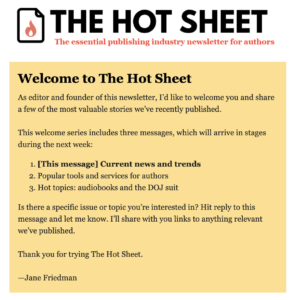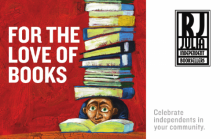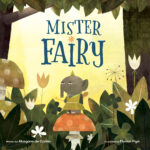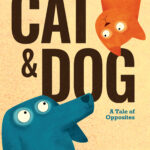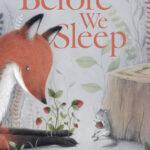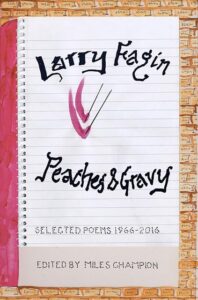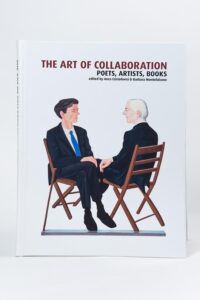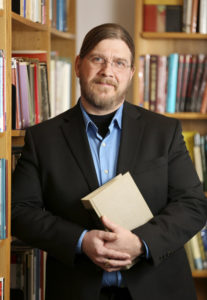Publishing Talks Interview with Jane Friedman of Hot Sheet
December 28, 2023 by David
Filed under Ebooks and Digital Publishing, Publishing History, PublishingTalks, The Future
 Publishing Talks began first as a series of conversations with book industry professionals and others involved in media and technology, mostly talking about the future of publishing, books, and culture. It was great fun talking with people in the book industry about the evolution of publishing in the context of technology, culture, and economics. Over the years, I talked with a variety of editors, publishers and others, innovators and leaders in independent publishing and bookselling in the past, and into the present.
Publishing Talks began first as a series of conversations with book industry professionals and others involved in media and technology, mostly talking about the future of publishing, books, and culture. It was great fun talking with people in the book industry about the evolution of publishing in the context of technology, culture, and economics. Over the years, I talked with a variety of editors, publishers and others, innovators and leaders in independent publishing and bookselling in the past, and into the present.
These conversations have been inspirational to me. I have had the pleasure of speaking with people who have influenced and changed contemporary literature and culture. I’ve also had the opportunity to speak with a number of friends and colleagues in the book business, always trying to explore and understand the complex web of books, authors and readers that is at the heart of our evolving culture.
Every year, ever more new books are published, and the “rules of the game” evolve faster than most of us can keep up. Given the pace of change in the book industry, I could not think of anyone better to learn about the latest trends and developments than Jane Friedman, whose insights and breadth of knowledge are unmatched among industry observers. I first spoke with her in 2015 and then again in 2022, and I always learn a great deal from her in every conversation we have.
Jane publishes a bi-weekly industry newsletter, a must-read for anyone involved with publishing, called The Hot Sheet. Her most recent book is The Business of Being a Writer (University of Chicago Press). Collaborating with The Authors Guild, she wrote The Authors Guild Guide to Self-Publishing. In 2023, Jane was awarded Publishing Commentator of the Year by Digital Book World.
You might also have heard of Jane because of her experience with AI book fraud, which she wrote about in August 2023. She has put together a roundup of the extensive coverage and interviews about what happened, which you can explore here.
And she publishers yet another newsletter for writers and creators called Electric Speed, which is also worthwhile subscribing to.
Her website offers a wide range of services and information for writers: “I report on the book publishing industry and help authors understand the business. I’ve been working in book publishing since the 1990s, but my views are not from the 1990s. Amidst rapid change in the industry, writers need honest and unbiased guidance to make the best decisions for their careers. I hope to offer you a signal amidst the noise.”
Jane Friedman is a very busy woman, I am truly grateful that she was able to take some time to talk to me about the latest goings on in publishing.
Writerscast began in 2008! Thanks to all who have participated and all of you who have listened to this series over the past 15 years. It’s been fun.
Podcast: Play in new window | Download
Publishing Talks: An Interview with Shouvik Paul of CopyLeaks
July 27, 2023 by David
Filed under PublishingTalks, Technology
 Publishing Talks began as a series of conversations with book industry professionals and others involved in media and technology, mostly talking about the future of publishing, books, and culture. I’ve spent time talking with people in the book industry about how publishing is evolving in the context of technology, culture, and economics.
Publishing Talks began as a series of conversations with book industry professionals and others involved in media and technology, mostly talking about the future of publishing, books, and culture. I’ve spent time talking with people in the book industry about how publishing is evolving in the context of technology, culture, and economics.
Later this series grew to include conversations that go beyond the future of publishing. In an effort to document the literary world, I’ve talked with a variety of editors, publishers and others who have been innovators and leaders in independent publishing in the past and into the present.
These conversations have been inspirational to me on many levels. I have gotten to speak with visionaries and entrepreneurs, as well as editors and publishers who have influenced and changed contemporary literature and culture. I’ve also had the opportunity to speak with a number of friends and colleagues I have met over the many years I have been in the book business.
I met Shouvik Paul a number of years ago when he was working for SharedBook, a company for whom I did some consulting work. He is a really smart guy and has been involved in a variety of technology related start ups during his career. Shouvik is currently the Chief Operating Officer of Copyleaks Inc., an award-winning AI-based text analysis company whose primary work is to identify potential plagiarism and paraphrasing across nearly every language, detect AI-generated content, and provide generative AI governance and compliance solutions. For obvious reasons, this kind of technology will be of interest to all kinds of publishers and content owners.
CopyLeaks has been working in AI for years, and now that AI in many different applications will become crucial for the book industry to understand and apply, I thought this would be a great opportunity for me and for Publishing Talks listeners to learn more about where this is all headed from someone who knows alot more than most of the rest of us.
I think this conversation will spur your thinking in a variety of ways. It certainly has inspired me to learn more about AI and how it can be used, what the risks of using it are, and how we need to think about AI both within the book business and in our overall culture. Don’t be surprised if this changes your outlook on the way AI will affect our business and hopefully it will inspire you as to learn more about it as well. The book industry cannot afford not to recognize how this technology will change our lives in so many ways.
Shouvik lives in Manhattan with his two daughters; he wanted me to note here that they refer to him as “That guy who has to stop and pet every dog that passes by” — which is a pretty great recommendation, in my view.
Podcast: Play in new window | Download
Publishing Talks: Interview with Mark Hurst of Creative Good
July 17, 2022 by David
Filed under Ebooks and Digital Publishing, PublishingTalks, Technology, The Future
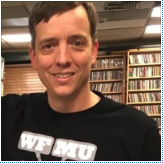 Publishing Talks began as a series of conversations with book industry professionals and others involved in media and technology, mostly about the future of publishing, books, and culture. I’ve spent time talking with people in the book industry about how publishing is evolving in the context of fast-changing technology, culture, and economics.
Publishing Talks began as a series of conversations with book industry professionals and others involved in media and technology, mostly about the future of publishing, books, and culture. I’ve spent time talking with people in the book industry about how publishing is evolving in the context of fast-changing technology, culture, and economics.
Along the way, this series broadened to include conversations that go beyond the future of publishing. In an effort to document the literary world, I’ve talked with a variety of editors, publishers and others who have been innovators and leaders in independent publishing in the past and into the present.
These conversations have been inspirational to me on many levels. I have gotten to speak with visionaries and entrepreneurs, as well as editors and publishers who have influenced and changed contemporary literature and culture. I’ve also had the opportunity to speak with a number of friends and colleagues I have met over the many years I have been in the book business.
The latest visionary is Mark Hurst, who founded and operates Creative Good, a New York-based consultancy and creative platform. Mark has spent his career writing, speaking, and advising teams about how to create better products and services. I’ve been reading his impressive writing for years, and have long admired his thinking and approach to technology, culture, and human behavior. Much of what he writes and talks about can be applied to the publishing industry, especially as it relates to powerfully centralized tech companies like Amazon, Apple, and Google.
Along the way, the very creative Hurst also created the useful and cool Good Todo mobile productivity platform, the world’s first cross-platform todo list, which he described in his first book, Bit Literacy, in which he introduced the “empty inbox” method of managing email (now better known as Inbox Zero – a practice I try to follow daily with mixed success).
Mark also hosts Techtonic – see techtonic.fm – a weekly FM radio show on WFMU. Here’s the Techtonic podcast.
His book Customers Included describes how teams and organizations can create successful products and strategies by including customers, a practice I have often thought publishers could benefit from applying to marketing matters.
Brooklyn 1776, the educational mobile videogame by Hurst and the Creative Good team, won the 2016 Brooklyn Innovation Award for best indie video game.
Mark earned both a bachelor’s and a master’s degrees in computer science from MIT. He lives in New York City with his wife and son.
It was great fun for me to have the opportunity to speak with Mark for this Publishing Talks series on Writerscast. We talked about a wide range of issues that should be of interest to anyone interested in current publishing and media technology matters.
Website: creativegood.com
Email: mark@creativegood.com

Podcast: Play in new window | Download
Publishing Talks: Interview with George Slowik, Jr. of Publishers Weekly
February 23, 2022 by David
Filed under Publishing History, PublishingTalks
 Publishing Talks began as a series of conversations with book industry professionals and others involved in media and technology, mostly talking about the future of publishing, books, and culture. I’ve spent time talking with people in the book industry about how publishing is evolving in the context of technology, culture, and economics.
Publishing Talks began as a series of conversations with book industry professionals and others involved in media and technology, mostly talking about the future of publishing, books, and culture. I’ve spent time talking with people in the book industry about how publishing is evolving in the context of technology, culture, and economics.
Some years ago, this series broadened to include conversations that go beyond the future of publishing. In an effort to document the literary world, I’ve talked with a variety of editors, publishers and others who have been innovators and leaders in independent publishing in the past and into the present.
These conversations have been inspirational to me on many levels. I have gotten to speak with visionaries and entrepreneurs, as well as editors and publishers who have influenced and changed contemporary literature and culture. I’ve also had the opportunity to speak with a number of friends and colleagues I have met over the many years I have been in the book business.
2022 is the 150th anniversary of Publishers Weekly, the essential trade magazine of the book industry. The magazine was founded in 1872, and the fact that it has not just survived, but thrived for most of the many years it has been published says something about both the book industry and the people who have been part of its trade media.
Just as it has done for so many magazines, the digital era has meant change for Publishers Weekly, and credit is due to current ownership for guiding it successfully through very difficult times. Those of us who have been around the book business for a long time remember PW as it is ubiquitously called, when it had a lot more pages than it does today, and when it was literally the only way to get news about publishing and bookselling in one reliable place. Now the print magazine is relatively short, most of us consume it digitally, and the magazine’s products and revenues are radically different from what they were just a few years ago, including a variety of newsletters, podcasts and other digital products.
George Slowik, Jr. is the owner of the magazine’s parent company, PWxyz, LLC. Slowik had been the publisher of the magazine from 1990-1993 and later ran the excellent magazine, American Prospect, and then in 2010 he bought it from its then owner, Reed Business Information, which was in the process of selling off its entire portfolio of publications.
When Publishers Weekly was originally launched it was the bibliographical source commercial publishers used to list their forthcoming titles for booksellers. The book business was relatively small at that time, with most publishers clustered in a few cities, especially New York and Boston. Over the many years it was in business, the magazine expanded to provide news and stories about the publishing industry, and today, while the industry and the media that serves it have grown, it still is an essential source of title data, publishing over 9,000 book reviews annually at a time when book reviews are more needed than ever.
In this podcast we talked about the magazine’s history, the creation of the digital archive of its entire run, activities around the 150th anniversary year, the past, present and future state of publishing, and much more.
Even if you are not an active participant in the book industry, the history of publishing is valuable to know about as it is in many ways the history of modern culture. You can learn more about Publishers Weekly and sign up for their free email newsletters, at their website. 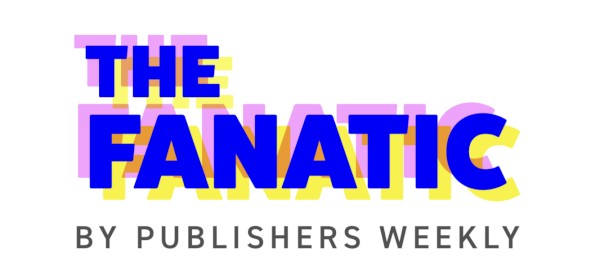
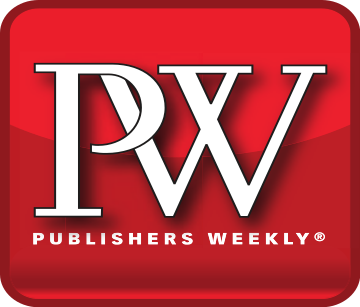
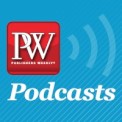
Podcast: Play in new window | Download
Publishing Talks: Interview with Roxanne Coady of R.J. Julia Booksellers
June 17, 2021 by David
Filed under PublishingTalks, The Future
 Publishing Talks began as a series of conversations with book industry professionals and others involved in media and technology, mostly talking about the future of publishing, books, and culture. I’ve spent time talking with people in the book industry about how publishing is evolving in the context of technology, culture, and economics.
Publishing Talks began as a series of conversations with book industry professionals and others involved in media and technology, mostly talking about the future of publishing, books, and culture. I’ve spent time talking with people in the book industry about how publishing is evolving in the context of technology, culture, and economics.
Some time ago, this series broadened to include conversations that go beyond the future of publishing. In an effort to document the literary world, I’ve talked with a variety of editors, publishers, booksellers, and others who have been innovators and leaders in independent publishing in the past and in the present.
These conversations have been inspirational to me on many levels. I have gotten to speak with visionaries and entrepreneurs, as well as editors and publishers who have influenced and changed contemporary literature and culture. I’ve also had the opportunity to speak with a number of friends and colleagues I have known over the many years I have been in the book business.
Bookstores have been an essential part of my entire life, even from early childhood, one benefit of growing up with a writer as father. Independent bookselling thrived from the late seventies into the late 1990’s, no doubt reflecting the Baby Boomer generation’s enthusiasm for books and ideas. The last twenty or more years have been very different, and now there are far fewer communities that support bookstores than at anytime in the past fifty years. Bookstores (along with public libraries) are a crucial element of a healthy culture, far more valuable than their size and scope would suggest. Local communities benefit from the presence of bookstores in many ways, and literary culture needs them too, as visible representations of a reading culture. Ideas grow and spread from books, but culture is also built around physically being present with one another.
So it is important for us to find ways as readers and literary citizens, to support bookstores, and it is equally important for booksellers to locate themselves, create and support communities around their stores, to support their workers and to make themselves meaningful enough to be thrive, despite the challenges of being small businesses in a mass-oriented consumer culture.
There are quite a few examples of booksellers who have made just such an impact, and their experiences and ideas are important for all of us to share and understand. It has been a particular pleasure for me to have known and worked with Roxanne Coady, the founder and owner of the exceptional R.J. Julia Booksellers, in Madison, Connecticut. We first met when Roxanne came to Connecticut to establish her new business after pursuing a successful career as a CPA in New York City. Over the years, I have spent many hours browsing their shelves, attending author events, and enjoying the cafe.
R.J. Julia has thrived during the period when local bookselling has faced an array of challenges, first from chain bookstores, then from Amazon and the rise of online retailing, and of course most recently, the pandemic. Throughout this time, Roxanne and her staff have innovated on many levels, including creating a drive-by pickup window for busy parents, putting on over 300 events a year (some of which are with celebrity authors), establishing an active email newsletter, providing online sales with speedy service, podcasting, and building an active book club. Throughout, the emphasis on community, care for staff as individuals, and listening to customers have been paramount characteristics of the enterprise. There is a bit of practical magic at work there, I think.
After more than 30 years of hard work and success, it’s obvious that Roxanne has quite a bit to say about what it takes to be a successful bookseller, to be a locally based business, and to be a crucial part of literary culture. I believe that our conversation should be meaningful for anyone interested in the future success of bookstores and the importance of building a real literary culture within a society that does not put enough value on books, authors, writing.
We need more bookstores! Visit the R.J. Julia Bookseller website and sign up for their newsletter.
Podcast: Play in new window | Download
Publishing Talks: Interview with Angus Yuen-Killick of Red Comet Press
April 21, 2021 by David
Filed under Publishing History, PublishingTalks, The Future
 Publishing Talks began as a series of conversations with book industry professionals and others involved in media and technology, mostly about the future of publishing, books, and culture. I’ve spent time in conversation with people in and around the book industry talking about its evolution in the contexts of technology, culture, and economics.
Publishing Talks began as a series of conversations with book industry professionals and others involved in media and technology, mostly about the future of publishing, books, and culture. I’ve spent time in conversation with people in and around the book industry talking about its evolution in the contexts of technology, culture, and economics.
Later, this series broadened to include conversations that go beyond the future of publishing. In an effort to document the current and recent past of book publishing, I’ve talked with a variety of editors, publishers and others who have been innovators and leaders of all kinds, past and present.
These conversations have been inspirational to me on many levels. I have gotten to speak with visionaries and entrepreneurs, as well as editors and publishers who have influenced and changed contemporary literature and culture. I’ve also had the opportunity to speak with a number of friends and colleagues whose work has influenced my own.
One such person is Angus Yuen-Killick, whom I have known since the 1990s when he came to the US to set up an outpost for a small UK publisher I was working with at the time. I was immediately impressed with Angus’ energy, vision and intelligence and since then, he has gone on to have a great career in children’s book publishing, his true love in the book business.
After working for several larger children’s book publishers over many years, Angus has now founded his own publishing imprint, Red Comet Press, about which he says:
“This is the realization of a long-held dream. The past year has forced us to reevaluate our priorities and reflect on our future. Launching a new publishing company seemed at once a crazy proposition, but also the absolute right thing to do.
At Red Comet Press, we will focus on the craft of publishing and curating a list of hand-picked titles. We will shepherd them through the publishing process, from creator to reader, with care and attention to detail. When we acquired these first books, it was a sign. They are inventive, surprising, touching, and multi-layered—and they remind me, upon every reading, of the passion and creativity that drew me to this business in the first place.”
Angus was interviewed earlier this year in Publishers Weekly, where he said “When I first started in the business, I worked at a tiny poetry publishing company in the north of England. My dad was an editor there and I was exposed to every aspect of the publishing process. When I left Macmillan last year and was trying to figure out the next step in my career after 30 years in corporate publishing, I realized that my dream was returning to that model of shepherding a list of books from the beginning to the end. This felt like the right thing for me to do next.”
Angus has help from his husband, Michael Yuen-Killick, a talented graphic designer, who serves as creative director for Red Comet, and a raft of friends and associates drawn from his many years of publishing. During his more than thirty years in book publishing, Angus has worked in key roles at various houses, including Macmillan, Penguin, Disney, and DK. I doubt there is anyone in children’s book publishing he does not know; he is widely respected and admired by his colleagues, and by many authors and illustrators as well.
It is always stimulating and fun for me to speak with Angus, so having him as a guest here is a special pleasure. If you are interested in the particular challenges of children’s book publishing, you will learn a great deal from Angus even from this brief interview. His knowledge and experience is unmatched. His enthusiasm and intelligence are often inspirational. And the books he publishes at Red Comet are going to be fantastic too. I am really looking forward to seeing his first list of books later this year.
Podcast: Play in new window | Download
Publishing Talks: Interview with Kyle Schlesinger of Cuneiform Press
April 5, 2021 by David
Filed under Publishing History, PublishingTalks
 Publishing Talks began as a series of conversations with book industry professionals and others involved in media and technology, mostly talking about the future of publishing, books, and culture. I’ve spent time talking with people in the book industry about how publishing is evolving in the context of technology, culture, and economics.
Publishing Talks began as a series of conversations with book industry professionals and others involved in media and technology, mostly talking about the future of publishing, books, and culture. I’ve spent time talking with people in the book industry about how publishing is evolving in the context of technology, culture, and economics.
Later this series broadened to include talks and interviews that go beyond the future of publishing. In an effort to document the literary world, I’ve talked with a variety of editors, publishers and others who have been innovators and leaders in independent publishing in the past, and into the present.
These conversations have been inspirational to me on many levels. I have gotten to speak with visionaries and entrepreneurs, as well as editors and publishers who have influenced and changed contemporary literature and culture. I started out in independent publishing, and early on learned how to set type by hand and operate mechanically operated printing presses that were even then becoming obsolete. I was never a very good printer and admire the poets and editors who have taken up the mantle of what is known as fine press printing to produce books that are artistically innovative and at times handmade.
Kyle Schlesinger is a poet and independent publisher whose work I have long admired. His press, Cuneiform (“Poetry, Typography and Artists’ Books) has established an incredible body of work since he issued his first book in 2000, Luisa Giugliano’s Chapter in a Day Finch Journal, published in Buffalo while Kyle was a student in the Poetics Program at SUNY, where he studied with Robert Creeley, Susan Howe, and Charles Bernstein.
Kyle first discovered the idea of printing through Will Hamlin, a Black Mountain College alumnus, while he was studying at Goddard College. He learned to print first in Vermont on an 1889 Prouty platen press with metal type. As he says on the Cuneiform site:
“We printed the literary review for Goddard College, instructions for using a compost toilet, Gertrude Stein stationery, and a few short poems. I remember building up the letters of William Carlos Williams’ “A poem is a small (or large) machine made of words” early on.”
This early experience quite evidently sent Kyle on the path to becoming a fine printer and book designer, and the hand work well suited to his personal design views, as he has gone on to produce a range of excellent writing expressed through fine design and outstanding creativity in book production.
After he left Buffalo, Kyle moved to Austin, Texas, where Cuneiform is now based. He teaches at the University of Houston, Victoria. Cuneiform produces books of poetry, artists’ books and even scholarly works, using letterpress and offset printing. Kyle and I had a great conversation earlier this spring. When it is possible to travel again, I am looking forward to visiting Cuneiform and seeing Kyle and the great Vandercook 219 proof press he runs in his shop in Austin.
Kyle and I share a number of connections, including poets and old friends, Kit Robinson, Steve Benson, and Kyle printed for years on a press he got from another old friend, Michael Waltuch, as well as a shared interest in Black Mountain College and its many amazing poets, artists and craftspeople. It’s inspiring to see his work, that carries forward the meaningful traditions of poets in collaboration with artists in the making of books. We had a wide ranging conversation about his work, past, present, and future.
Visit the Cuneiform Press website – do consider buying some books or subscribing or even donating, as Cuneiform is a 501 (c)3 nonprofit, donations are tax-deductible!
Podcast: Play in new window | Download
Publishing Talks: David Wilk interviews Dan Blank of We Grow Media
December 16, 2018 by David
Filed under Ebooks and Digital Publishing, PublishingTalks, The Future
 Publishing Talks began as a series of conversations with book industry professionals and folks active in media and technology, at that time, mostly talking about the future of publishing, books and culture. At the outset of this series, I was mostly interested in exploring what people were thinking about the changing economics and culture of publishing and reading.
Publishing Talks began as a series of conversations with book industry professionals and folks active in media and technology, at that time, mostly talking about the future of publishing, books and culture. At the outset of this series, I was mostly interested in exploring what people were thinking about the changing economics and culture of publishing and reading.
Now, I’ve expanded these talks to go beyond the future of publishing – in some cases, by going backwards to discuss the recent history of publishing, and in some instances, sideways into various other realms that interest me. I’ve talked with editors and publishers who have been innovators and leaders in independent publishing in the past, and into the present, and will continue to explore the ebb and flow of writing, books, and publishing in to document the cultural milieu around books, authors and publishers.
Dan Blank is an inspiring and practical thinker about books, authors and readers. We met a number of years ago, and in working with him on a project to help self publishing authors, I was impressed with his thinking and ideas for ways to help writers conceptualize marketing. I first talked to him for Publishing Talks all the way back in 2012 – you can listen to that interview here. I have continued to follow his work through his excellent email newsletter, and frequently, have been inspired by his writing, especially his view of how writers can thrive in a challenging environment. Since so much has changed in the publishing landscape over the past several years, I thought it would be valuable to talk to Dan again about his current work with writers, books, readers, and the way they are connected.
Dan did not disappoint. This interview is full of great advice for writers and anyone who is interested in connecting with audiences in today’s media-rich environment.
As Dan says about himself on his website, he “help(s) writers and creative professionals share their stories and connect with their audience.” He’s worked with hundreds of authors and many publishers as well. And he has written his own book too, making the process of writing and publishing the book part of his experience-based coaching – Be the Gateway: A Practical Guide to Sharing Your Work and Engaging an Audience.
Dan’s website, wegrowmedia.com is well worth spending some time with, and his newsletter has been a valuable source of ideas and inspiration to many.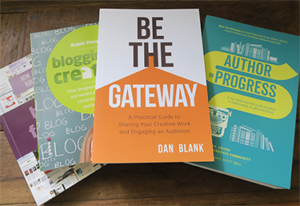
Podcast: Play in new window | Download
David Wilk interviews Bob Miller of Flatiron Books
October 8, 2018 by David
Filed under Publishing History, PublishingTalks
 Publishing Talks began as a series of conversations with book industry professionals and people active in media and technology. At that time, some years ago, we were mostly talking about the future of publishing, books and culture, exploring what people were then thinking about the changing economics and culture of publishing and reading.
Publishing Talks began as a series of conversations with book industry professionals and people active in media and technology. At that time, some years ago, we were mostly talking about the future of publishing, books and culture, exploring what people were then thinking about the changing economics and culture of publishing and reading.
This series has expanded to go beyond the future of publishing, now engaging with the history of contemporary publishing and various other book-related subjects. I’ve talked with editors and publishers who have been innovators and leaders in a range of publishing projects, and will continue to explore the ebb and flow of writing and publishing in many forms and formats, to help document the specific cultural milieu around books, authors and publishers.
Bob Miller is currently the president and publisher of Flatiron Books, a relatively new division of Macmillan. Bob founded Hyperion for Disney in 1990 and was its president and publisher until 2008. He began his career at St. Martin’s Press and has also worked at Delacorte Press, HarperCollins, and Workman. Key titles Miller has acquired for Flatiron to date include What I Know For Sure by Oprah Winfrey, The Secret History of Twin Peaks by Mark Frost, Promise Me, Dad by Vice President Joe Biden, and in April, 2018, A Higher Loyalty by James Comey.
I thought it would be valuable to hear from Bob about his extremely successful publishing work with Flatiron and his colleagues there, and to get an understanding of what it takes to be successful in today’s commercial publishing. Bob has mastered all of the tools and strategies available to publishers, and understands better than most what it takes to continue to innovate and do well in a challenging environment. And the essential philosophy underlying the foundation of Flatiron has proved to be exceptionally strong. I hope you enjoy this conversation with Bob Miller as much as I did.
You can learn more about Flatiron Books and its current books here.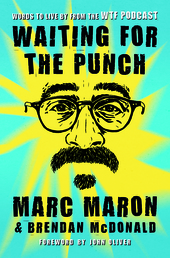
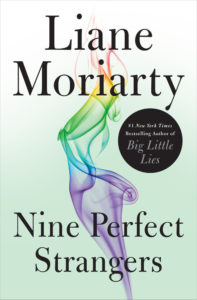
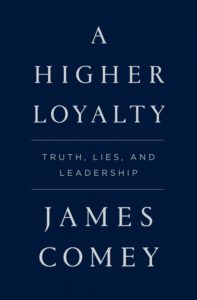
Podcast: Play in new window | Download
David Wilk interviews Tony Sanfilippo of Ohio State University Press
May 6, 2018 by David
Filed under Ebooks and Digital Publishing, PublishingTalks, The Future
Publishing Talks began as a series of conversations with book industry professionals and others involved in media and technology, mostly talking about the future of publishing, books, and culture and have now expanded the series to include conversations that go beyond the future of publishing. I’ve talked with editors and publishers who have been innovators and leaders in independent publishing in the past and into the present, and will continue to explore the ebb and flow of writing, books, and publishing in all sorts of forms and formats, as change continues to be the one constant we can count on.
Tony Sanfilippo is director of the Ohio State University Press in Columbus, Ohio. Under his direction, the press has expanded its trade book and regional publishing programs in interesting and innovative ways, while maintaining a strong commitment to scholarly publishing.
Before joining OSU Press in 2014, Tony was at Pennsylvania State University Press, where he was marketing director and assistant director, having started there as acquisitions editor of regional titles. While at Penn State, he was actively involved with the press’s digital programs. He has also had key roles with the Association of American University Presses and The Association of American Publishers.
Tony is a graduate of Southern Illinois University, and before becoming involved in publishing, he spent more than 20 years as a trade bookseller, as co-owner and manager of Svoboda Scholarly Books in State College, Pennsylvania.
New technology continues to have a big impact on academic and scholarly publishing, and many university presses are actively engaged in exploring and applying digital technology and implementing new publication strategies. Sanfilippo devotes a significant percentage of his time on these issues, and his unusual background and broad pop culture subject interests make him a compelling subject for a Publishing Talks interview.
It was a pleasure to spend some time in a wide ranging conversation about the challenges and opportunities facing university press publishing with this very smart and interesting press director.
Here is a description of OSU Press from its website:
We specialize in literary and cultural studies (including comics, narrative theory, Victorian studies, and medieval studies), American studies, rhetoric and communication, gender and sexuality studies, and race and ethnic studies (including Black studies and Latinx studies). We also acquire books in regional studies on our Trillium imprint, creative works, on our Mad Creek imprint, and linguistics, and publish the annual winners of The Journal’s non/fiction and poetry prizes.
Among the most notable titles published by the Press are Language Files, an introductory linguistics textbook now in its 12th edition; The Centenary Edition of the Works of Nathaniel Hawthorne, the definitive 23-volume edition of the American master’s writings; The Death of Contract, a classic in legal studies; and Listen to Me Good, a moving autobiography of an Alabama midwife. The Press was the original publisher of the Helen Hooven Santmyer blockbuster “. . . And Ladies of the Club,” which is now out of print.
In addition to its books, the Press publishes a distinguished group of journals including Inks, the Journal of the Comics Studies Society, Adoption & Culture, American Periodicals, Victorians, North American Journal of Celtic Studies, and Narrative.
Visit the OSU Press website for more information about their books and programs and read a very useful post, University Press Publishing Under an Autocracy by Tony Sanfilippo at the always interesting Scholarly Kitchen.
Podcast: Play in new window | Download

